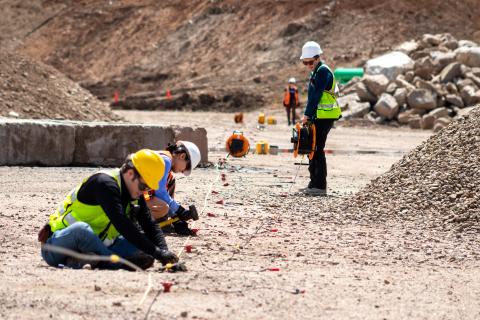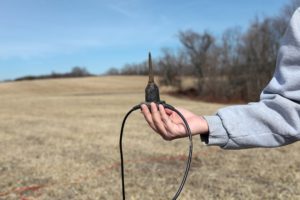All Categories
Featured
Table of Contents
Geophysical Engineering Undergraduate Program in Peppermint Grove Western Australia 2023
This work is significantly contracted out, so consultancies provide another source of employment. Consultancy companies differ in size, from extremely little business to large multinationals. Some consultancies are quite specialised in using specific geophysical techniques or working in particular areas, while others use a more varied series of services to their customers.
The extraction of gas from land fill websites is another location of employment and this may grow in the future. Exploration business might undertake work for building firms, public utility, mining business and ecological firms, so geophysicists may be used in any of these settings. Other employers include: geological surveysgovernment bodies and agenciesuniversities and research study institutes.


Jobs might be noted in the oil and gas sector press. Recruitment is affected by oil rate changes and the level of competitors for positions differs depending on this. Careers Days, which cover the full series of geoscience careers and are generally participated in by a variety of essential industry employers, are run by The Geological Society.
An Assessment Of Geophysical Survey Techniques ... in Floreat Oz 2023
Some of the big oil and gas business provide a full two-year structured training program throughout the breadth of geophysics, consisting of the chance to experience work in different groups prior to specialising in one location. Your training might include deal with: existing wellsmagnetic and gravitational possible field information analysisresearchrock analysis. It's more typical for your initial training to be offered on the task.

There may be a probationary duration throughout which you work alongside a knowledgeable colleague. Competency-based appraisals occur regularly in the majority of firms. In smaller sized companies, and for scholastic posts, there is unlikely to be any formal training - you'll be expected to begin work straightaway and get abilities as you go along.
If you work for a smaller sized business, you may find that you require to take obligation for arranging and funding your own development and training. If you have a geology degree, subscription of The Geological Society can be useful for networking and for keeping up to date with the industry.
What Is Geophysics? in Roleystone WA 2023
You may also find it useful to join the PESGB (The Petroleum Expedition Society of Great Britain, which has a geophysics special interest group. After a probationary period, and once you've gained some experience, you might progress to senior geophysicist, then group leader and after that into a senior role in management.
The ease of motion in between functions depends upon the business structure. Study at Masters or Ph, D level in a subject associated to geophysics or geosciences might aid with your career advancement and development. The employment market within the oil and gas industry is really dependent on rate and this may impact your chances for career development.
However, not all tasks depend on the oil and gas markets. For knowledgeable geophysicists, freelance consultancy provides a great path for career advancement. You can likewise specialise in a particular area of geophysics. As a geophysicist, you're most likely to have a number of jobs throughout your working life. International mobility is essential for handling peaks and troughs in various countries at different times.
Average Geophysicist Salary in Myaree Aus 2022
From geophysics, it's possible to focus on seismology (completing further training to end up being a seismic interpreter) or to move into associated areas such as engineering geology or threat prediction.
Deciding what to study in college is a hard option. Even if you understand that your field of interest lies in science, what program of research study is best for you?
The very first action to achieving your objective of becoming a geophysicist is earning a degree. Even for entry-level positions in the field of geoscience, you'll need a bachelor's degree (a geophysicist college degree) from an accredited college or university. Some research positions require candidates to hold master's degrees or perhaps Ph.
Geophysical Survey Flashcards in Lakes Oz 2021
Postgraduate degree are especially important if you plan to teach at a four-year organization. Geophysicists apply physics concepts and methods to study the gravitational, magnetic, and electrical fields of the earth. This enhances researchers' knowledge of both the planet's interior core and its surface area. Geophysicists must have the ability to: examine rocks, photos, and other pieces of information perform research both in the field and in laboratories develop maps and charts of their findings compose reports To accomplish all this, students require a specialized education for geophysicist professions.
As specified above, you'll require a bachelor's degree in geoscience or an associated discipline, such as a physical science or a life sciences, to land an entry-level job. However trainees can also prepare by learning subjects like: Biology Chemistry Computer system science Engineering Mathematics Physics The above geophysicist majors provide a more generalized approach to a single clinical discipline, however many programs need students to take several geology course.
Latest Posts
Geophysical Surveys Definition & Meaning In Stock ... in Murdoch Oz 2023
About Environmental Geophysics in Middle Swan Aus 2022
Geophysicist Job Description in Australia 2021